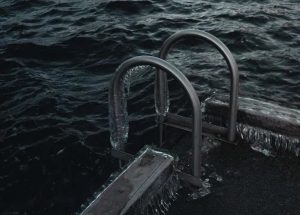Cold water therapy has been around for centuries, it’s no new thing despite gaining a lot of popularity over the past years. The benefits of cold-water therapy are wide and varied, from improving mood and management of mental health, to providing systemic anti-inflammatory relief and increasing a positive immune response.
Cold water therapy doesn’t have to be an ice bath, it’s any exposure of the body to an acute cold condition. This could look like taking a cold shower or splashing cold water on your face.
There are different terms used for different cold therapy techniques:
- Cold-water immersion
Full or partial body immersion into water at 15 degrees C. Can be conducted in a clinical or home setting.
- Whole-body cold therapy
Generally refers to cold air therapy (-110 degree C or colder) in a special chamber in a clinical setting only.
- Cryotherapy
Refers to a variety of delivery methods of cold therapies.
The acute change to the body stimulates the vagus nerve. While the body adjusts to the cold, sympathetic activity declines, while parasympathetic activity increases.
Research has shown cold therapy to reduce depression, anxiety, and stress as well as improving mood and general brain function. This could be due to the brain releasing norepinephrine during cold stress, which is shown to reduce depression and anxiety. Heart rate and heart rate variability are linked to reductions in stress as well, with reductions in heart rate and heart rate variability occurring with cold therapy. Mood and brain function improve through stimulation of the parasympathetic nervous system.
In part through stimulation of the vagus nerve complex, cold therapy reduces inflammatory responses throughout the body and thus stimulates the body to heal as well as increasing positive immune response for fighting disease and infection. This beneficial response may be what reduces symptoms and inflammatory markers present in blood from autoimmune disorders such as rheumatoid arthritis and fibromyalgia.
Because of the severe nature of exposing the body to cold temperatures, there are some contraindications, those being:
- Deep vein thrombosis.
- Peripheral vascular disease.
- Open wound.
- Skin sensation impairment (e.g. some diabetic patients)
- Severe cognitive impairment (e.g. dementia patients)
- Cold allergy.
In a research study where the effect of different water immersion temperatures on post-exercise cardiac parasympathetic reactivation was evaluated, they concluded that cold water immersion accelerates, while hot water immersion blunts post-exercise parasympathetic reactivation, though those recovery strategies are short-lasting and not evident 4 hours after the exercise session. (https://journals.plos.org/plosone/article?id=10.1371/journal.pone.0113730)
Cold water therapy could be a useful recovery technique post exercise and utilised as a stress management tool for a variety of different health conditions. But always be cautious and talk to a health professional before commencing any such protocols.




